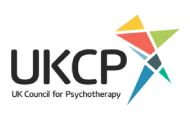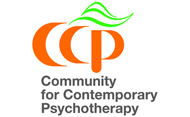Therapy
As an integrative contemporary psychotherapist, I work to ensure that therapeutic approaches to treatment fit the needs of each client. This flexibility allows more choice about what therapeutic model to use. For example, we may focus on using one specific approach throughout the therapy or we might find it helpful to adapt the therapeutic approach throughout the sessions by drawing from a range of models. Some of the therapeutic approaches I use are described below:

Psychotherapy
Psychotherapy is a process in which we explore emotional challenges, thoughts, moods and patterns of behaviour, usually through talking. This is why psychotherapy is known as a talking therapy. Psychotherapy can help people to learn how to respond to challenging situations with healthier coping skills, how to overcome unhelpful patterns of behaviour and how to reframe distressing beliefs and past experiences. The term psychotherapy covers a range of approaches and methods. As a contemporary clinical psychotherapist, my approach is integrative. This means that my therapeutic model is founded upon traditional wisdom but continues to evolve to incorporate evidence-based developments in psychotherapy practice and research.
EMDR
The term EMDR in full can sound quite daunting – Eye Movement Desensitization and Reprocessing – however, in practice it tends to feel intuitive and accessible. EMDR works by replicating the period of rapid eye movement we experience when we process events and emotions during sleep. Incidents that cause traumatic stress can block this process and EMDR works to reactivate this during the therapy, so that the event no longer triggers the same distressing response. Additional benefits of using EMDR to process traumatic memories are that you do not ‘relive’ or even need to talk about the distressing event in the session. EMDR can also be helpful to ease the impact of other disorders such as anxiety, depression, eating disorders and addiction and it can be used to heighten positive emotions and a sense of emotional stability.


Cognitive hypnotherapy
Cognitive Hypnotherapy is an evidence-based approach which uses trance to induce a deep state of heightened relaxation, during which the unconscious mind becomes very receptive to new or difference perspectives and ideas. Trance is easily accessed during the therapy session because it is a natural and familiar state which we enter naturally throughout each day. It is comparable to being so absorbed in a book or film that the hours seem to fly by or to being in a meeting where your mind has wandered. Hypnopsychotherapy uses this natural state of mind to explore what may have led to problems we have in the present – often a result of the way we interpreted experiences in the past. The therapy can then be used as a helpful therapy to guide the mind and body towards improved wellbeing.
Internal family systems
How we present our self in one situation can be different from how we are in another. The evidence-based model of Internal Family Systems (IFS) approaches therapy from this principle. With IFS, we work with the various representations of ourself that express different, and sometimes conflicting, thoughts, beliefs and needs. For example, you may have noticed yourself thinking “part of me wants to do x but part of me wants to do y”. IFS helps us to understand our internal system, uncover the function of these disparate parts and work to transform and harmonise our internal system. In IFS we believe there is an undamaged resourceful self at the core of every person and that accessing and working with that self is a safe and effective way to heal from a range of psychological conditions and emotional concerns.







